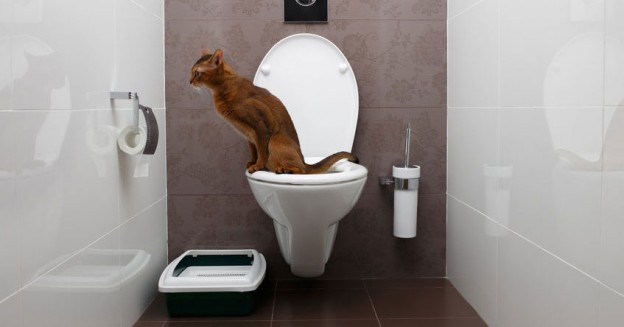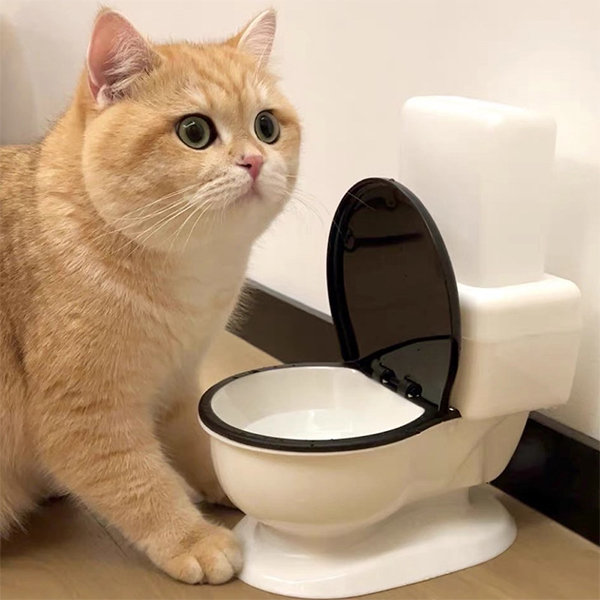Never Flush Cat Poop Down Your Toilet - Safeguard Your Plumbing System
Never Flush Cat Poop Down Your Toilet - Safeguard Your Plumbing System
Blog Article
This post down below on the subject of Can You Flush Cat Poo or Litter Down the Toilet? is unquestionably enlightening. Check it out for yourself and decide what you think of it.

Introduction
As pet cat proprietors, it's necessary to be mindful of just how we dispose of our feline pals' waste. While it may appear practical to flush pet cat poop down the bathroom, this practice can have destructive repercussions for both the environment and human health.
Alternatives to Flushing
The good news is, there are much safer and a lot more liable means to dispose of feline poop. Consider the adhering to alternatives:
1. Scoop and Dispose in Trash
One of the most typical method of disposing of feline poop is to scoop it right into a naturally degradable bag and toss it in the trash. Be sure to utilize a dedicated trash inside story and throw away the waste promptly.
2. Usage Biodegradable Litter
Opt for naturally degradable feline clutter made from materials such as corn or wheat. These clutters are environmentally friendly and can be securely dealt with in the garbage.
3. Hide in the Yard
If you have a yard, take into consideration burying feline waste in a designated location away from veggie yards and water sources. Make sure to dig deep adequate to prevent contamination of groundwater.
4. Set Up a Pet Waste Disposal System
Buy an animal garbage disposal system specifically created for feline waste. These systems make use of enzymes to break down the waste, reducing odor and ecological influence.
Health Risks
In addition to ecological problems, flushing feline waste can additionally pose wellness threats to humans. Cat feces may consist of Toxoplasma gondii, a bloodsucker that can cause toxoplasmosis-- a potentially serious ailment, particularly for pregnant ladies and people with damaged body immune systems.
Environmental Impact
Flushing cat poop introduces dangerous virus and bloodsuckers right into the water supply, positioning a considerable threat to marine communities. These pollutants can negatively affect marine life and compromise water high quality.
Final thought
Accountable family pet ownership prolongs past giving food and sanctuary-- it additionally entails correct waste monitoring. By avoiding purging pet cat poop down the commode and selecting alternate disposal techniques, we can decrease our ecological impact and secure human health and wellness.
Why Can’t I Flush Cat Poop?
It Spreads a Parasite
Cats are frequently infected with a parasite called toxoplasma gondii. The parasite causes an infection called toxoplasmosis. It is usually harmless to cats. The parasite only uses cat poop as a host for its eggs. Otherwise, the cat’s immune system usually keeps the infection at low enough levels to maintain its own health. But it does not stop the develop of eggs. These eggs are tiny and surprisingly tough. They may survive for a year before they begin to grow. But that’s the problem.
Our wastewater system is not designed to deal with toxoplasmosis eggs. Instead, most eggs will flush from your toilet into sewers and wastewater management plants. After the sewage is treated for many other harmful things in it, it is typically released into local rivers, lakes, or oceans. Here, the toxoplasmosis eggs can find new hosts, including starfish, crabs, otters, and many other wildlife. For many, this is a significant risk to their health. Toxoplasmosis can also end up infecting water sources that are important for agriculture, which means our deer, pigs, and sheep can get infected too.
Is There Risk to Humans?
There can be a risk to human life from flushing cat poop down the toilet. If you do so, the parasites from your cat’s poop can end up in shellfish, game animals, or livestock. If this meat is then served raw or undercooked, the people who eat it can get sick.
In fact, according to the CDC, 40 million people in the United States are infected with toxoplasma gondii. They get it from exposure to infected seafood, or from some kind of cat poop contamination, like drinking from a stream that is contaminated or touching anything that has come into contact with cat poop. That includes just cleaning a cat litter box.
Most people who get infected with these parasites will not develop any symptoms. However, for pregnant women or for those with compromised immune systems, the parasite can cause severe health problems.
How to Handle Cat Poop
The best way to handle cat poop is actually to clean the box more often. The eggs that the parasite sheds will not become active until one to five days after the cat poops. That means that if you clean daily, you’re much less likely to come into direct contact with infectious eggs.
That said, always dispose of cat poop in the garbage and not down the toilet. Wash your hands before and after you clean the litter box, and bring the bag of poop right outside to your garbage bins.
https://trenchlesssolutionsusa.com/why-cant-i-flush-cat-poop/

I'm certainly very fascinated with Can You Flush Cat Poo or Litter Down the Toilet? and I'm hoping you enjoyed reading our blog posting. Enjoyed our review? Please share it. Help someone else discover it. Bless you for your time. Don't hesitate to pay a visit to our site back soon.
Get A Free Estimate Report this page